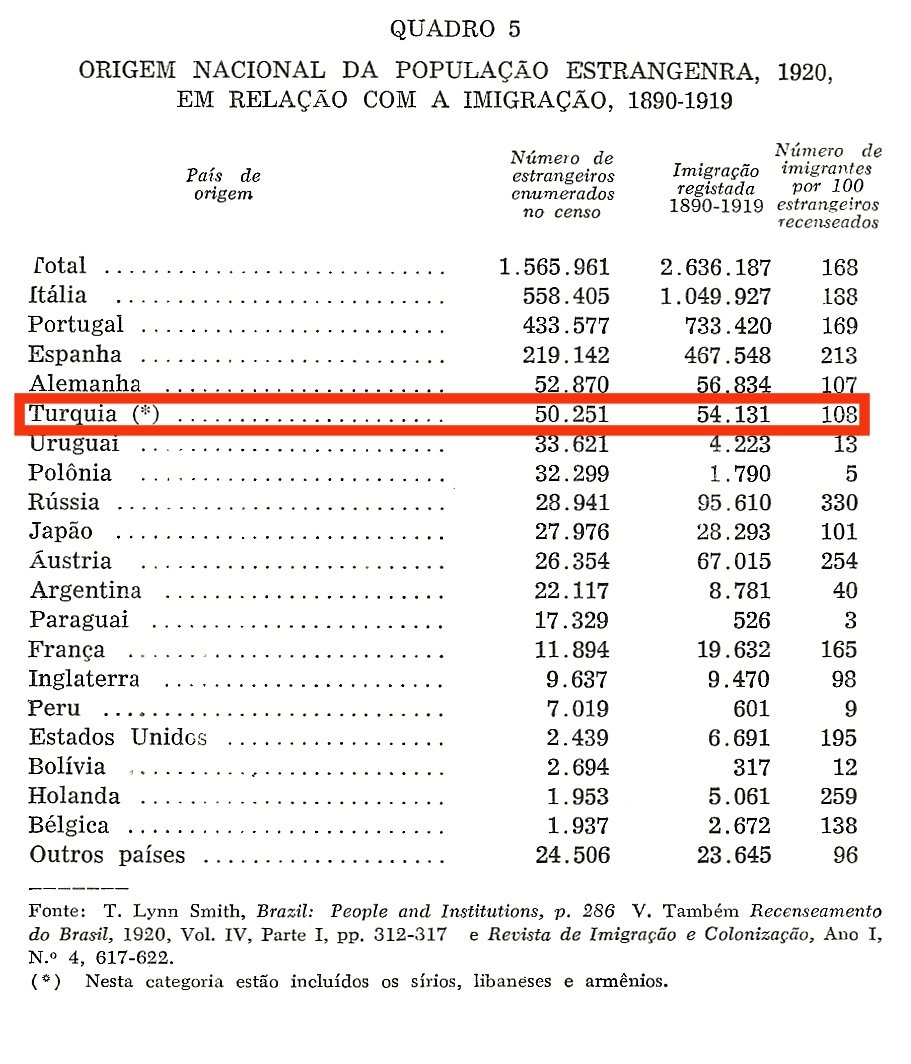Early Arab Immigrants Chose their own Path
Many immigrants that came to Brazil in the late 19th century, such as Italians and Japanese, arrived with job proposals and had to work on farms according to their contracts. However, early Arab immigrants from Lebanon and Syria largely came without employment contracts, allowing them freedom to pursue opportunities. Many Arab immigrants became small itinerant business men, roaming from town to town selling goods. Known locally as “mascates”, they gained a reputation as savvy merchants.

From Mascates to Thriving Business Owners
As enterprising mascates, Arab immigrants built social and commercial networks across Brazil. After accumulating savings, many opened their own stores and some became highly successful in industries like textiles. Meanwhile, immigrants from Portugal, Italy and Spain often remained stuck as farm workers facing greater economic barriers. The growing commercial success of Arab immigrants occasionally led to resentment, such as the infamous “Comb Uprising” riot targeting Arab stores in Curitiba in 1959.
Educating the Next Generation
Starting in the 1930s, Arab families invested heavily in their children’s education, wanting them to attain prestigious careers and social status. They urged their offspring to study subjects like law, medicine, and engineering at major universities. This educated new generation incorporated civic participation through careers in politics, academia, music, literature and other fields.
Political Ascendance of Arab-Descendants
Many educated Arab-Brazilians entered politics starting from university involvement. Prominent examples include Michel Temer, the former interim President who took over from impeached President Dilma Rousseff, and Fernando Haddad, the former Mayor of São Paulo. Other political figures with Arab heritage include controversial former Governor Paulo Salim Maluf and left-wing Congresswoman Jandira Feghali.
Community Cohesion through Heritage and Enterprise
Arab cultural traditions remain strongly reflected in Brazilian society through cuisine, language, and other aspects of daily life. This cultural integration paved the way for later Arab immigrant waves. In Rio de Janeiro, the predominantly Arab and Jewish owned retail cooperative “Saara” operates over 100 shops along Rua da Alfandega. Saara’s name references the desert region in a nod to its founders’ Middle Eastern roots.
Upper Middle Class Status through Entrepreneurship
Most late 19th/early 20th century immigrant groups to São Paulo, including Lebanese, Italians, Portuguese and Japanese, achieved considerable economic success through small businesses and later large corporations. Their descendants now comprise Brazil’s professional upper middle class across fields such as law, medicine, engineering and commerce. Arab entrepreneurial values of risk-taking and adaptability were key to this upward mobility.
Celebrating Arab Roots while Embracing Brazilian Identity
While still subject to lighthearted ethnic jokes, Arab-Brazilians are fully integrated with a strong sense of national identity. Community groups celebrate shared heritage through cultural festivals, Arabic language programs, and historical societies. However, assimilation was a priority from the early immigrant generation onward. Bicultural Arabs exemplify how ethnic roots can be proudly maintained within a predominant Brazilian social framework.
A Legacy of Multi-Ethnic Economic Achievement
São Paulo emerged as Brazil’s economic powerhouse due to the industriousness and business acumen of its diverse immigrant communities in the late 19th/early 20th centuries. Arab entrepreneurial spirit significantly contributed to this legacy of achievement. While many family companies have since been replaced by multinationals, their descendants still enjoy relatively high socioeconomic status through education. This upholds the timeless virtues of hard work, adaptability and goal-oriented persistence that allowed immigrants to flourish in their new home.

 selecting the right recorder
selecting the right recorder